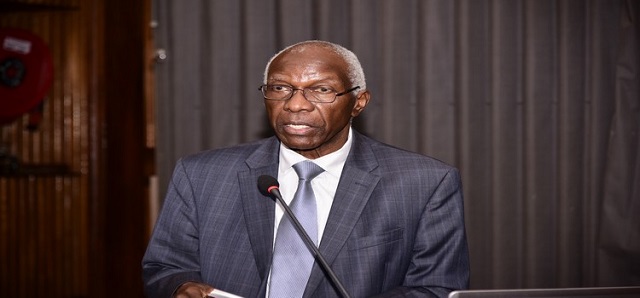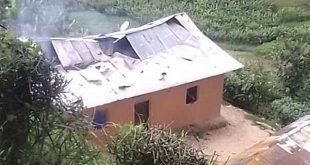
Kampala, Uganda | THE INDEPENDENT | Seven markets constructed by the government through the Markets and Agricultural Trade Improvement Project (MATIP-1) have accumulated 1.4 billion shillings in arrears due to low revenue collection, the Auditor General’s report reveals.
The government through MATIP-1 redeveloped and reconstructed the seven markets at a cost of USD 64.5 million (approximately 226.5 Billion) to create a conducive trade environment and increase revenue collections for the municipalities.
The markets are Gulu Central market, Wandegeya market, Mpanga market in Fort Portal, Mbale Central market, Jinja Central market, Hoima Central market, and Lira central market.
The Auditor General’s report for the financial year 2020/21, reveals that the annual revenue budgets of all the seven markets were consistently below their revenue potential by 38 percent.
The report indicates that whereas the revenue potential for the markets was 32.8 billion shillings over the six years reviewed, the markets only budgeted to collect 12.5 billion over the period.
The Auditor General’s report further indicates that out of the budget of 12.5 Billion shillings by the seven markets for the six-year period, only 7.9 billion shillings was collected, representing a performance of only 54 percent.
“The under-collection of revenues affected the ability of the markets to meet their obligations which resulted in the accumulation of arrears worth 1.41 billion shillings,” The Auditor General says.
This was attributed to the unrealistic low budget and revenue, to lack of automated revenue management system, leaseholders who were not paying monthly market rents, unoccupied stalls and lockups, irregular subletting, and the failure to terminate the tenancy of rent defaulters.
Gulu Central Market whose construction was completed in 2015 at the cost of 28 billion shillings hasn’t generated enough revenue in the past years due to poor revenue collection.
According to the Gulu City performance report, city officials planned to collect 4.3 Billion in the financial year 2015/16 to 2020/2021 from the market, but only 2.3 Billion was collected.
The low revenue collection however triggered concerns from stakeholders and consequently an investigation against some city officials including politicians by the Parliamentary Public Accounts Committee (Local Government).
During a sitting of the committee in December last year in Parliament, Members of Parliament noted that some of the city officials and politicians flouted the operational guidelines and fraudulently allocated themselves lockups in the market at the expense of the rightful vendors.
Reacting to the Auditor’s General report on Monday, Gulu City Mayor Alfred Okwonga acknowledged low revenue collection but noted that the mismanagement of the market revenue collection began before he took over office.
Okwonga reiterated that the lack of an automated revenue management system, reluctance to remit taxes by people who hired out their stalls and lockup shops, and effects of covid-19 among others negatively impacted revenue collection.
Okwonga however says they recently concluded the verification of vendors at the market and introduced the Automated Revenue Collection to boost revenue collection that has been low.
He says since the introduction of the system, the City Council has realized an increment in revenue collection within a short span this quarter.
The Auditor-General in his report also found that four markets of Mbale, Gulu, Lira, and Jinja were overcrowded with the vendor occupancy exceeding the markets design capacity by 36 percent due to over-allocation of market spaces, illegal traders, and sub-lets.
It also found that all the seven markets had failed to maintain adequate sanitation within the markets due to overcrowding, an insufficient number of garbage truck skips, and poor maintenance of infrastructure.
In his recommendation, the Auditor General advised the cities to roll-out automated revenue management systems in all the markets, enforce terms of tenancy agreements in relation to sub-letting invoicing and payment of rent.
Other recommendations included modifying the market structures to allow for better lighting and improved access, addressing issues of illegal occupants, and developing guidelines to regulate sub-letting.
*****
URN
 The Independent Uganda: You get the Truth we Pay the Price
The Independent Uganda: You get the Truth we Pay the Price



